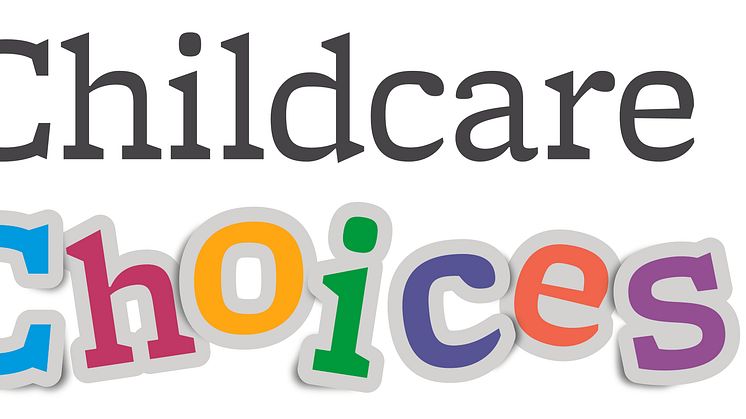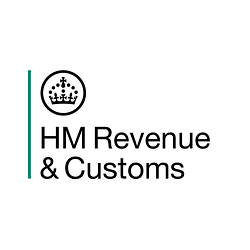
Press release -
Take the stress out of school holidays – government help with childcare
Almost a third of parents in Great Britain (31%) feel stressed trying to arrange childcare for the school holidays according to a new YouGov poll out today.
The poll run by YouGov for HM Revenue and Customs (HMRC) also found that around a third of British parents (30%) worried about balancing their job and school holiday childcare. And more than half (54%) admitted they look forward to their children returning to school in September.
But to help with summer childcare, working parents are being reminded that they can use Tax-Free Childcare (TFC), which is worth up to £2,000 per child per year, to pay for regulated holiday clubs during the school holidays.
More than 58,000 registered childcare providers including school, football, art and tennis clubs have signed up across the UK. Parents that pay into their account regularly can ‘save up’ their TFC allowance and use it for childcare during school holidays. The money can go towards a whole range of regulated childcare including nurseries, childminders, before and after school clubs, or holiday clubs.
Parents can apply for Tax-Free Childcare and 30 hours free childcare* at the same time and are encouraged to do so before the end of June in time for next term. They can then both be used together, with Tax-Free Childcare payments applying to any additional childcare costs over and above the 30 hours support, throughout the year. Both offers are available to self-employed parents.
Parents can find out what government help is available and apply online by visiting the Childcare Choices website www.childcarechoices.gov.uk. It includes a Childcare Calculator (www.gov.uk/childcare-calculator) that compares all the government’s childcare offers to check what works best for individual families.
Chief Secretary to the Treasury, Liz Truss, said:
“Organising childcare for school holidays is important for parents. Tax-Free Childcare and 30 hours free childcare help make things easier by cuttings thousands of pounds from the childcare bills of working parents.
“So I hope families across the country visit the Childcare Choices website to take advantage of the offer available from the Government, and enjoy the holidays.”
Children and Families Minister, Nadhim Zahawi, said:
“We are spending more than any other government on childcare because we want every child to get the best start in life.
“We are supporting as many families as possible with access to high-quality, affordable childcare helping to put more money in their pockets and balancing work and family lives.”
Notes for Editors
1.All figures, unless otherwise stated, are from YouGov Plc. Total sample size was 334 adults who are parents of children aged 16 and under from an overall sample of 1613 GB adults. Fieldwork was undertaken between 21 - 22 May. The survey was carried out online.
2.31% of British parents surveyed feel stressed trying to arrange childcare for the school holidays.
26% described feeling stressed before childcare arrangements have been organised, with the same percentage relieved when arrangements are made.
30% worry about balancing their job and school holiday childcare.
54% of parents admitted they look forward to their children returning to school.
3.In 2019/20 the government will spend around £6 billion on childcare support.
4.How Tax-Free Childcare works
Working parents can apply, through the childcare service, to open an online childcare account. For every £8 that families pay in, the government will make a top-up payment of an additional £2, up to a maximum of £2,000 per child per year (or £4,000 for disabled children). This top up is added instantly and parents can then send electronic payments directly to their childcare providers. The maximum government top-up is £500 per quarter for each child, or £1,000 if the child is disabled.
All registered childcare providers – whether nannies, nurseries, childminders or after school clubs – can sign up online now to receive parents’ payments through Tax-Free Childcare.
Parents need to sign back in every three months and confirm their details are up to date, to keep getting government top-ups.
Tax-Free Childcare is replacing ‘childcare vouchers’, which is only available to parents if their employer offers it. Employer-Supported Childcare will be closing to new entrants on 4 October 2018, but parents who are already a member of a scheme will be able to remain in it as long as they remain with their employer and their employer continues to offer it. The tax and National Insurance exemption for workplace nurseries will remain in place. Parents moving from Employer-Supported Childcare to Tax-Free Childcare can still use childcare vouchers they’ve previously accrued.
5.How 30 hours free childcare works
30 hours free childcare is for working parents of 3 and 4 year olds who can get 30 hours a week of childcare for 38 weeks of the year, a total of 1,140 hours per year, which can be used flexibly with one or more childcare provider. Some childcare providers will allow parents to spread fewer hours over more weeks. This offer is available in England*. This is a further 15 hours in addition to the universal entitlement for all 3 and 4 year olds.
Parents can take up a 30 hours place the term after their child turns three and the date they receive a 30 hours code, whichever is later. Parents should apply in good time to get their 30 hours code, they can apply up to 16 weeks before their child turns three. We are encouraging eligible parents to apply for a code now in time for a September start. Parents already receiving the offer need to reconfirm they are eligible every three months.
6.An animation setting out the new childcare offer is available here: Childcare Choices offer
7.High resolution images of the Childcare Choices logo, infographic and website can be found here: Childcare Choices images
8.Follow HMRC’s Press Office on Twitter @HMRCpressoffice
9.HMRC’s Flickr channel www.flickr.com/hmrcgovuk
Topics
Categories
Issued by HM Revenue & Customs Press Office
HM Revenue & Customs (HMRC) is the UK’s tax authority.
HMRC is responsible for making sure that the money is available to fund the UK’s public services and for helping families and individuals with targeted financial support.

